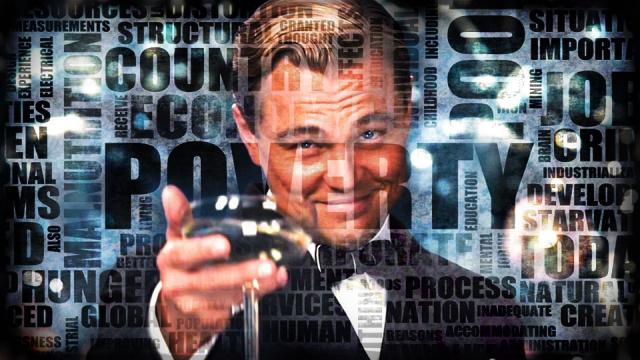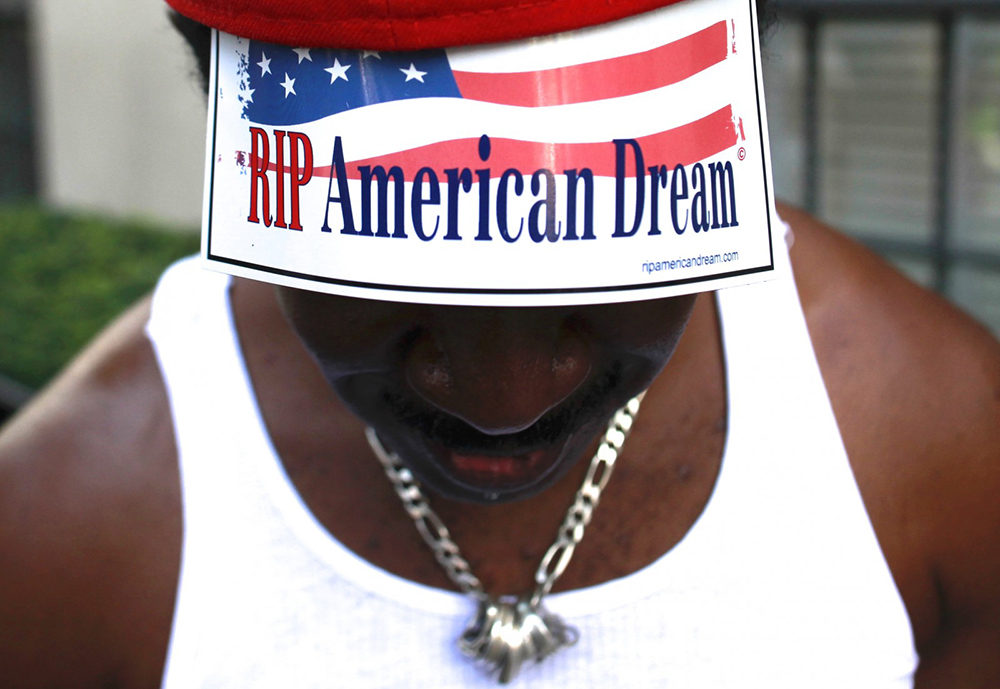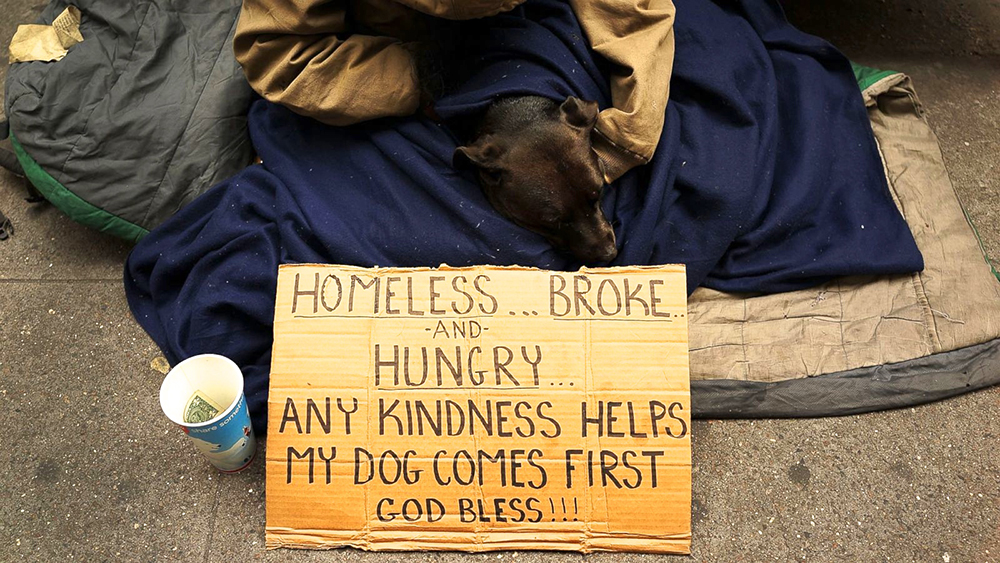
Two years after Occupy gave voice to popular anger at inequality, the issue of the 1% continues to top the political agenda. At times, though, this takes a very incongruous form, and no more so than this week when multi-millionaires on their annual $100,000 pilgrimage to Davos declared income disparity as their number one concern.
The World Economic Forum even seemed to welcome admonishment from the Pope and Oxfam with Klaus Schwab, the executive chairman, agreeing that “we have too large a disparity in the world” and “need more inclusiveness.”
But there was one admonishment that those at WEF were not willing to listen to: the challenge to their assumption that they should decide on global issues. The concentration of wealth, highlighted by Oxfam’s report that 85 of the richest people own the same wealth as half the world’s population, is only part of the picture.
The bigger issue is the concentration of power that arises from and generates further wealth concentration. Addressing this will mean questioning the very existence of Davos and the way it has fostered and encouraged policies that have entrenched corporate rule and elite power in recent decades.
A new report published this week by the Transnational Institute entitled State of Power – Exposing the Davos Class, makes clear that the widening gulf between rich and poor is closely tied to an economic system that has given corporations unprecedented influence over policy making, and enshrined rights for corporations that supersede human rights.
Today, 37 of the world’s largest economies are corporations. Walmart, Shell, Volkswagen and others have become modern-day empires, bigger economically than Denmark, Israel or Singapore. And when you examine who owns these corporations, the power gets even more concentrated – with 1% of businesses, just 147 companies, controlling the shares of more than 40% of the world’s transnational corporations.
Corporations have been able to achieve this power through a systematic takeover of the state, rather like a virus infects a body. Driven by a profit-making motive embedded in their genetic makeup, corporations have sought at every stage to remove barriers and facilitate their cancerous growth. The result has been trade deals that allow corporations to sue states but give no legal recourse to states, as legislation drafted by corporate lawyers – and approved in Europe, the U.S. and elsewhere – consumed whatever influence was left among thinktanks, media outlets and cultural institutions.
The infection has been so effective, and thorough, that it is increasingly difficult to assess who is a public official and who is a corporate leader, given the revolving door between these positions.
One example covered in TNI’s report is the European Round Table of Industrialists, a network of about 50 of Europe’s largest corporations, which in the early 1980s decided to work together to shape EU policy and encourage the development of a competitive (read: deregulated) “internal market.”
By 1993, the group had been so successful that one senior ERT official said their proposals and the EU’s proposals were almost done in “parallel …. we saw their drafts and they saw our drafts. And one of my friends, a very senior official in the Commission, he said to me, there is basically no difference between them.” More recently, ERT’s demands for “fiscal consolidation” – in other words, austerity for ordinary people but clearly not for corporations which took bailouts – have been wholeheartedly applied by European governments and the European Commission with terrible social costs.
Yet, rather than seek to tackle these vested interests and address the root causes of inequality and social injustice, the World Economic Forum seeks to strengthen them. The Forum proudly proclaims it is run by its members who “comprise 1,000 of the world’s top corporations... with more than $5 billion in turnover. These enterprises rank among the top companies within their industry and play a leading role in shaping the future of their industry and region.”
It shouldn’t be forgotten that the idea for the North American Free Trade Agreement (NAFTA) between Mexico, the U.S. and Canada germinated at Davos. The result, as we know 20 years later, is a toxic legacy of sweatshops, environmental contamination, high poverty levels and violence that has wracked Mexico.
Moreover, a look at the prominent corporate members of Davos quickly unveils a history of fraud, tax evasion, human rights abuses and environmental degradation – none of which, it seems, disqualifies them from having open access to Davos and governments worldwide.
Instead of questioning corporations’ accountability or their impact, Klaus Schwab claims corporations should be given an even greater role in deciding public policy. In a Foreign Affairs article in 2008, he argued for “global corporate citizenship,” saying that companies “are themselves stakeholders alongside governments and civil society.”
Schwab states that the world’s complex problems are best dealt with through multi-stakeholderism – in other words, transnational corporations along with a few powerful governments, carefully selected "thought leaders" and invited members of "civil society." The power balance of this multi-stakeholderism is evident in the mix represented at Davos – a theoretical working model for the global governance toward which Davos aspires. This year, while some 1,500 business delegates attend, there are only 37 NGO leaders (mainly from large NGOs) and 10 labor leaders.
But thanks to powerful political backers, Schwab’s proposition for a corporate-led governance is gaining traction. In 2009, taking advantage of the global crisis, WEF launched the Global Redesign Initiative (GRI) aiming “to stimulate a strategic thought process among all stakeholders about ways in which international institutions and arrangements should be adapted to contemporary challenges.”
Its final report advocates a stakeholder approach in every aspect of public policy. It rejects intergovernmental agreements, international frameworks, enforceable hard law that would constrain corporations, favoring instead voluntarism, codes of conduct and soft law. The theme of this year’s WEF, “The Reshaping of the World,” clearly builds on this proposal.
The attempts at Davos to further concentrate political power takes us completely in the wrong direction for tackling today’s social and ecological crises. As Susan George notes, “Democracy has in no way kept up with the pace of globalization; whether nationally or internationally, authority is exercised without the consent of the governed.”
Davos portrays itself as the forward-thinking, enlightened, socially responsive side of business – but is, at its core, part of of the problem and not the solution. While its members have been forced to address inequality thanks to the power of popular movements emerging worldwide, the ongoing actions of those members are entrenching inequality. Last year, the wealth of the world’s millionaires grew by 11 percent while it stagnated, and fell, for the rest of us.
And that is why it will require popular movements to fundamentally challenge the political as well as economic power of the Davos class before that trend can be expected to change.
3 WAYS TO SHOW YOUR SUPPORT
- Log in to post comments













